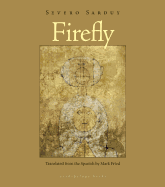 Skinny, big-headed Firefly is the eponymous child hero of Severo Sarduy's hallucinatory invocation of pre-Castro Cuba, an endearing little waif whose tale begins in the midst of a hurricane, as he kills his entire family by putting rat poison in their tea. Taken into custody in a corrupt charity house, he never speaks with anyone. He has one set of clothes, which he washes each night. Two retired luminaries of the island's medical community take charge of the boy murderer, and Firefly begins work as an errand boy for notaries in a nightmarish document depot where old files and papers are his only blankets. He's still a kid. He has bad nights. He's not above wetting the old moth-eaten couch where he's allowed to sleep.
Skinny, big-headed Firefly is the eponymous child hero of Severo Sarduy's hallucinatory invocation of pre-Castro Cuba, an endearing little waif whose tale begins in the midst of a hurricane, as he kills his entire family by putting rat poison in their tea. Taken into custody in a corrupt charity house, he never speaks with anyone. He has one set of clothes, which he washes each night. Two retired luminaries of the island's medical community take charge of the boy murderer, and Firefly begins work as an errand boy for notaries in a nightmarish document depot where old files and papers are his only blankets. He's still a kid. He has bad nights. He's not above wetting the old moth-eaten couch where he's allowed to sleep.
By the time Firefly is just getting a "fuzzy shadow above his lips," he falls in love with the enchanting Ada, a frisky orphan girl with red hair. He undergoes his sexual deflowering at the hands of two plump young whores. He falls off a slippery pier into a bog swarming with green insects. Unable to stop crying, Firefly finally approaches the legendary Pavilion of the Pure Orchid for the grim revelations of the finale.
The fragmentary, elusive plotting is overcome by Sarduy's language, images stumbling over each other in profusion like tropical flowers, with dreams and visions adding surreal touches, like suicidal goldfish or a decapitated man whose smiling head falls in his lap. Bordering on magical realism, Firefly remains grounded in the grim, realistic details of destitution and poverty, the sights and sounds of a fading, peeling past. Every page is noisy: horse hooves clopping, the cries of vendors, the blaring of car horns, the swearing of sailors, the moans of slaves. It's a sticky world of sugar and rum, with stains and holes and burn marks in its onetime splendor. Dozens and dozens of characters are crowded into this tight narrative, a cast of "nuns, cabin boys, leering quadroons, pickpockets, card sharks, knife-sharpeners, witch doctors, medical astrologists, herbalists, swindlers and slaves," along with Soviet advisers and Santeria priests.
Sarduy's tropical island is a nightmarish labyrinth of poverty and corruption, where Firefly is an unwilling pawn, fighting his way out of one deception after another. The boy remains a lonely, likable mystery at the center of it all, and his feisty struggle to survive on his own makes for a lyrical farewell to Sarduy's own childhood and a lost way of life. --Nick DiMartino
Shelf Talker: A poetic, hallucinatory invocation of pre-Castro Cuba lies within the tale of a big-headed orphan boy who poisons his family and is taken to a charity house.
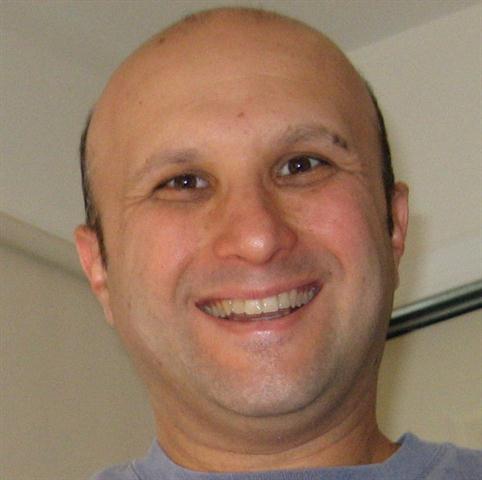 I read with interest the piece on doing returns. I had an old rep who pushed the importance of returns and markdowns when I first started buying in 1997. He told me, "You can fall in love with your girlfriend, you can fall in love with your wife, but don't fall in love with the inventory." This advice has led to 15 years of manageable account payables and 12 happy years of marriage.
I read with interest the piece on doing returns. I had an old rep who pushed the importance of returns and markdowns when I first started buying in 1997. He told me, "You can fall in love with your girlfriend, you can fall in love with your wife, but don't fall in love with the inventory." This advice has led to 15 years of manageable account payables and 12 happy years of marriage.




SHELFAWARENESS.1222.S1.BESTADSWEBINAR.gif)




SHELFAWARENESS.1222.T1.BESTADSWEBINAR.gif)

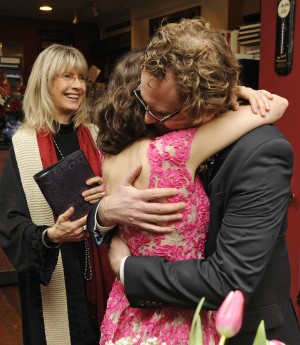
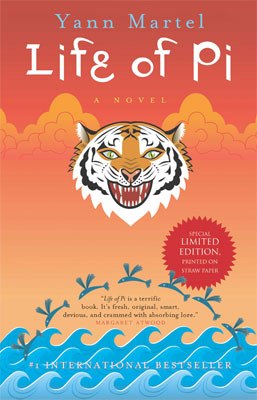 Yann Martel and Alice Munro have partnered with sustainable paper advocate
Yann Martel and Alice Munro have partnered with sustainable paper advocate 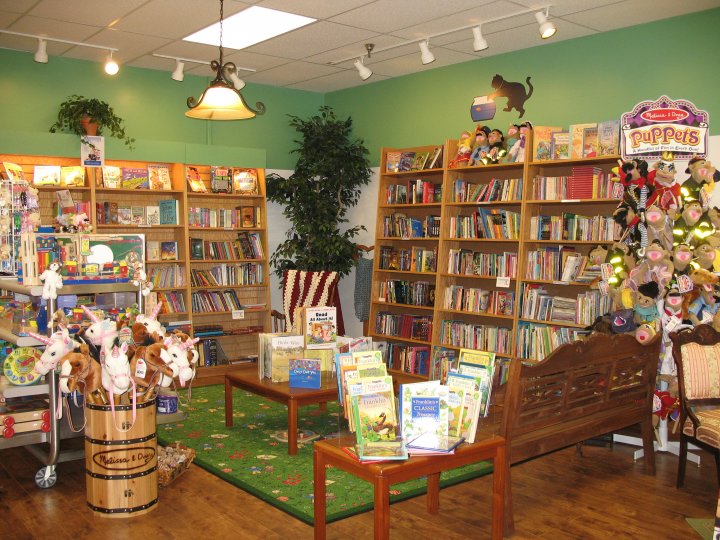
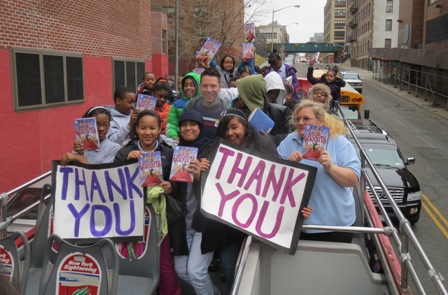
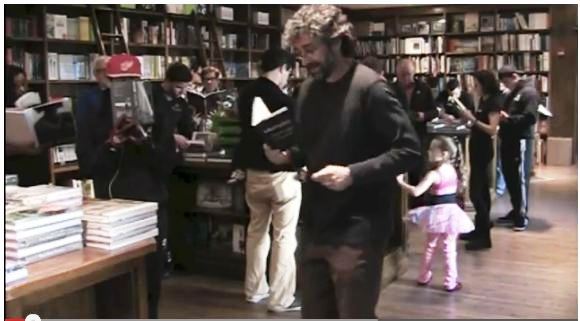 Books & Books, Coral Gables, Fla., does the Harlem Shake
Books & Books, Coral Gables, Fla., does the Harlem Shake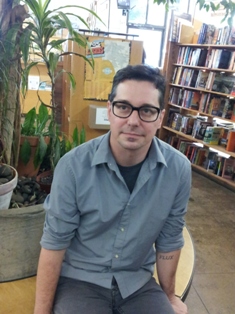 "I thought I knew the answer--where I was going. I thought Skylight Books was just a stepping stone keeping me above water until my future arrived. But it turned out to be much more than that. Skylight Books was my future. It made me and, hopefully, I have had some influence on it as well. My road ran straight into Skylight Books, our futures, now our present, entwined.... I am connected as well as guided by this giant organism that contains all the writers, readers, fans, stars, booksellers, boat builders, booze drinkers, brain builders, heart breakers, poet kissers, words, ideas, stories.... These are the things that make up a beast like a bookstore. And so are you. We influence each other. And influence needs trust. It feels good to be trusted and to be able to trust."
"I thought I knew the answer--where I was going. I thought Skylight Books was just a stepping stone keeping me above water until my future arrived. But it turned out to be much more than that. Skylight Books was my future. It made me and, hopefully, I have had some influence on it as well. My road ran straight into Skylight Books, our futures, now our present, entwined.... I am connected as well as guided by this giant organism that contains all the writers, readers, fans, stars, booksellers, boat builders, booze drinkers, brain builders, heart breakers, poet kissers, words, ideas, stories.... These are the things that make up a beast like a bookstore. And so are you. We influence each other. And influence needs trust. It feels good to be trusted and to be able to trust." Battle Ready: Memoir of a SEAL Warrior Medic
Battle Ready: Memoir of a SEAL Warrior Medic "My favorite flower is the stargazer lily. It wasn't until I read this month's book buyer's pick that I started thinking about what it and other flowers mean. Curious about what the stargazer signifies, I learned that it can express purity, devotion and wealth.
"My favorite flower is the stargazer lily. It wasn't until I read this month's book buyer's pick that I started thinking about what it and other flowers mean. Curious about what the stargazer signifies, I learned that it can express purity, devotion and wealth. Skinny, big-headed Firefly is the eponymous child hero of Severo Sarduy's hallucinatory invocation of pre-Castro Cuba, an endearing little waif whose tale begins in the midst of a hurricane, as he kills his entire family by putting rat poison in their tea. Taken into custody in a corrupt charity house, he never speaks with anyone. He has one set of clothes, which he washes each night. Two retired luminaries of the island's medical community take charge of the boy murderer, and Firefly begins work as an errand boy for notaries in a nightmarish document depot where old files and papers are his only blankets. He's still a kid. He has bad nights. He's not above wetting the old moth-eaten couch where he's allowed to sleep.
Skinny, big-headed Firefly is the eponymous child hero of Severo Sarduy's hallucinatory invocation of pre-Castro Cuba, an endearing little waif whose tale begins in the midst of a hurricane, as he kills his entire family by putting rat poison in their tea. Taken into custody in a corrupt charity house, he never speaks with anyone. He has one set of clothes, which he washes each night. Two retired luminaries of the island's medical community take charge of the boy murderer, and Firefly begins work as an errand boy for notaries in a nightmarish document depot where old files and papers are his only blankets. He's still a kid. He has bad nights. He's not above wetting the old moth-eaten couch where he's allowed to sleep.